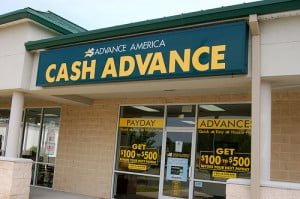
Will Payday Lenders Avoid New Restrictions By Residing On Tribal Lands – Bankruptcy Attorney
 Many debtors filing bankruptcy have already been devoured financially by the payday lending industry. They walk into the bankruptcy attorney office weighed down with high interest rate payday loans, desperate for a way out. The Dodd-Frank Act of financial reforms was designed to alleviate much of that desperation and financial suffering; but some payday lenders are determined to get their way by setting up what some describe as sweet heart deals on tribal lands.
Many debtors filing bankruptcy have already been devoured financially by the payday lending industry. They walk into the bankruptcy attorney office weighed down with high interest rate payday loans, desperate for a way out. The Dodd-Frank Act of financial reforms was designed to alleviate much of that desperation and financial suffering; but some payday lenders are determined to get their way by setting up what some describe as sweet heart deals on tribal lands.
“Native American partnerships are solely a practice of a group of Internet-based lenders who choose not to license themselves in the states in which they operate,” according to a statement by D. Lynn DeVault, board chairwoman of the Community Financial Services Association of America, an organization “dedicated to advancing financial empowerment for consumers through small dollar, short-term loans.”
But while states may not be able to force the hand of tribal land authorities, the federal government has the power to enforce regulations. As a matter of fact the Treasury Department has hinted at the possibility of federal intervention with payday loan centers located on tribal land if they violate federal regulations.
According to the Treasury Department’s overview of the Dodd-Frank Act, which singles out issues pertaining to Native Americans, it: “establishes, for the first time, robust federal supervision and oversight over larger alternative financial service companies such as check cashers and payday lenders, including on reservations.”
This could be good news for consumers still being exploited by the payday loan industry. By using the power of the federal government to enforce payday loan regulations, we may be able to help more consumers avoid payday loan debt.
(source: TheStreet.com )

